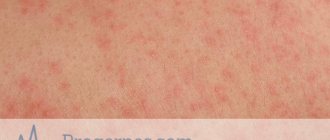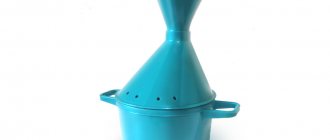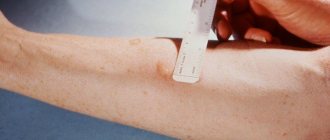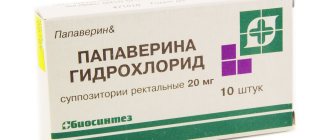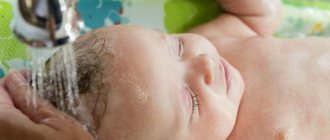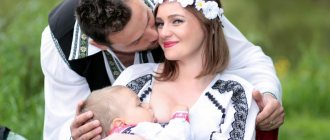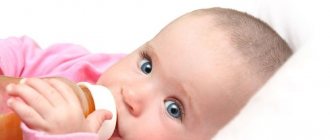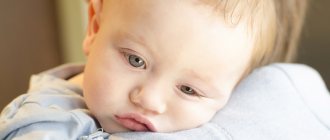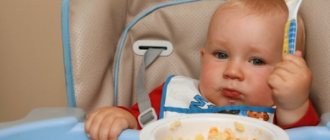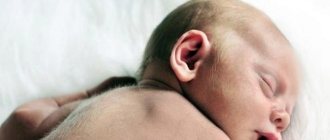The most important hygiene procedure not only for children, but also for adults is bathing. All loving and caring parents try to accustom their child to water procedures from birth. They understand that taking a bath not only cleanses children's skin of dirt, dust and sweat, but also relieves nervous overstimulation.
But for young mothers, the manifestation of the first symptoms of a cold in their babies is very frightening. Therefore, many doubt: is it possible to bathe a child with a runny nose, or should hygiene procedures be postponed in the bathroom until he recovers?
Let's try to figure out together whether it is possible to bathe a baby with a runny nose and how water treatments affect middle-aged and older children with a cold.
Is it possible to wash a child with snot and how useful is it?
Despite the fact that the opinion about the dangers of bathing with the least symptoms of a cold has been around for a long time, many doctors still cannot give a specific answer to the question of whether it is possible to bathe a child with a cold.
Heavy sweating is a normal symptom of a cold. This is accompanied by clogged pores, it is difficult for the child’s skin to “breathe,” and toxic substances are retained in the child’s body. In addition, not bathing a child is wrong, even from a medical point of view.
Taking a bath helps relieve muscle pain, which is important during a painful condition. Bathing also has a positive effect on the respiratory system, which is affected during illness, especially if you add essential oils or decoctions based on medicinal herbs, such as bay leaves, to the water (it reduces sweating, is a powerful natural antibiotic, and normalizes sleep). By breathing medicinal vapors, newborns and older children perform a kind of inhalation, which helps remove mucus from the nasopharynx and bronchi, relieves throat spasms, improves the release of phlegm in dry coughs, and brings the moment of recovery closer. In addition, cleaning the nose will calm the baby and allow him to get a good night's sleep.
When can you bathe a child with a cough?
Doctors confirm that bathing when coughing is even beneficial for a child’s health if the cough is of physiological origin (microscopic particles or smoke have entered the mucous membrane) and non-cold symptoms are observed (allergies, helminthic infestation, etc.).
Sometimes children cough when they have heart failure. At the same time, coughing attacks are accompanied by increased sweating, so bathing the child in a timely manner is very important. By breathing in moist, warm air during the water procedure, your baby will relax and sleep more peacefully.
Children's health often deteriorates and cold symptoms appear during the period when baby teeth are being cut. The child becomes very nervous. No cough remedies will help if you do not find out the cause of cold symptoms. In this state, the washing process will only improve your well-being and relieve the cough reflex. The baby's body will get rid of excess moisture that is released through the mucous membranes.
After visiting a doctor who will consider the obvious symptoms and causes of the disease, you can finally decide on bathing the child.
In what cases is bathing children with a runny nose contraindicated?
Despite the fact that taking a bath for a cold toddler is useful, circumstances may arise in which it is still worth postponing bathing to a more appropriate time. To avoid complications and not worsen the baby’s well-being, you need to follow these rules:
- refrain from swimming in the first 24 hours from the moment the first symptoms of the disease appear;
- It is prohibited to take a bath when the baby’s body temperature is high;
- You should not give your child a lot of liquid before bathing (this can worsen his well-being);
- Do not give food before bathing (the child may vomit);
- taking medications is done after a bath.
In addition, a runny nose is not only a manifestation of ARVI, sore throat, or bronchitis. Snot can also be a reaction of the child’s body to rubella, scarlet fever, chickenpox and other childhood diseases, as well as to vaccinations (for example, DTP), teething in infants.
Note! During vaccination, after which some children may snot, their body temperature rises, etc., pediatricians do not recommend giving children a bath, swimming in the sea or in a pool, especially visiting a bathhouse. This is because the introduction of the vaccine reduces the resistance of the immune system. In addition, the water may contain microorganisms that can lead to infection of the baby.
If the child’s physiological condition is satisfactory, there is no fever, just a stuffy nose, then swimming is not contraindicated. In this case, it is enough to avoid drafts, monitor the water temperature, and avoid temperature changes in the bathroom and in the room in one direction or another.
After swimming, it is very important to avoid hypothermia! To do this, just wipe the baby dry, dress him warmly, not forgetting to put on socks. It’s good if bathing is done before bed - after the bath you can wrap your child in a warm blanket.
Not less important! When bathing children with rhinitis, it is not recommended to wash or wet their hair, so as not to worsen the condition of the sick child. You can wash your hair only when absolutely necessary, and it is advisable to postpone it until complete recovery.
Rules for bathing infants when coughing
Particular attention should be paid to children under one year old. They can’t talk about how they feel, but their vivid emotions and reaction to water speak volumes.
If the causes of the disease, which occurs in the baby without fever, are found out, then taking a bath or washing the cough will not hurt. The pediatrician monitoring the baby will tell you whether it is possible to swim. But when starting water procedures, you need to know a few important rules:
- In case of ARVI and a runny nose or cough, the temperature of the water prepared for bathing the baby should be much warmer than usual. Pour sea salt into the bath and add a few drops of essential oil - eucalyptus or pine. Then the child is quickly dried, wrapped in a warm blanket, and 15 minutes after washing, put on dry clothes. If the baby sweats again, he will have to be changed. So that at the same time as bathing, treatment takes place at home. Folk remedies will be a successful addition to the hygiene procedure. The baby is given warm herbal tea or milk.
- If the baby suffers from gastroesophageal reflux (regurgitation of food), accompanied by coughing attacks, bathing is carried out without restrictions. You can add decoctions of medicinal herbs (chamomile, eucalyptus) to the water, which will relax the child’s body. He will sleep peacefully.
- The time of bathing is determined by the type of cough. If the cough due to bronchitis is unproductive, only a light shower and quick warming are recommended. When coughing with sputum, warm or even hot baths with medicinal herbal infusions will be part of the treatment of any colds.
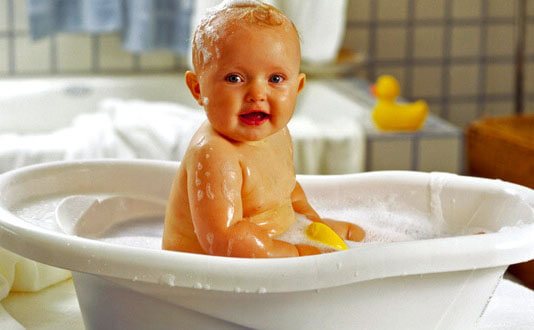
What medicinal baths will benefit your baby?
Since we have figured out that you can and should wash a child with snot, we bring to your attention recipes for medicinal baths that will speed up recovery.
Please note: although you can bathe a child if he has a cold, taking medicinal baths, you need to avoid products with dyes and aromatic additives. It is better to give preference to natural and herbal ingredients that do not cause allergies.
- Hot bath.
Despite the fact that not every doctor approves of taking hot baths for children with a cold, today there is a lot of verified information that such procedures have a healing effect.
The duration of the bath is 15 minutes, the water temperature should reach 38 ° C. It is recommended to add herbal infusions to hot water, such as chamomile, mint, and St. John's wort.
- Mustard.
Taking a mustard bath helps warm up the body and speed up recovery.
To prepare a bath, it is important to follow the proportions: for a volume of water of 200 liters you will need 400 g of mustard powder. It is diluted to a thick sour cream, then poured into the bath.
You can take such a bath for no longer than 15 minutes, then the child is washed in the shower and warm clothes are put on him.
On a note! Baths with mustard powder can increase the temperature, so the procedure is contraindicated at the slightest increase in body temperature.
- Turpentine bath.
Turpentine baths for colds are an excellent way to remove toxins from the body that do not come out through the pores of the skin. Also, a bath with turpentine has a beneficial effect on the circulatory system and normalizes the functioning of internal organs.
To prepare, you need a white emulsion with grated baby soap, salicylic acid, turpentine and water. Salicylic acid is mixed with soap, poured with pre-boiled water, the mass is brought to homogeneity, and cooled to 40-45 oC. Then turpentine is added to the mass.
For the first bath, you will need 15-20 ml of emulsion; for subsequent procedures, add another 60-70 ml. In this case, the water temperature should be within 36-37 oC. It is recommended to take a bath for 10-15 minutes, repeating the procedure every other day no more than 15 times.
- Eucalyptus baths.
During illness, eucalyptus normalizes well-being and accelerates the improvement of the patient's condition.
To prepare a bath, 7-8 drops of eucalyptus oil, diluted in hot water, are enough. Bathing duration is up to 15 minutes.
Wash or bathe?
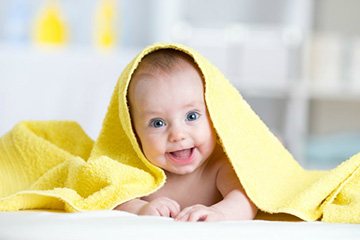
There is a huge difference between the words “bathe” and “wash”.
So, washing means getting rid of dirt or dust; very little time is allocated for such a procedure, and you need to wash the child regularly, no matter what condition he is in.
Pediatricians answer in the affirmative to a question that interests many mothers: “Is it possible to wash a child with a cough that is accompanied by an increase in body temperature?”
This is due to the fact that when the temperature rises, the child actively sweats; with sweat, all bacteria, viruses and toxins come out, clogging the pores. If this condition continues in a child for a long time, the skin stops breathing and prickly heat begins to develop. Therefore, even at elevated temperatures, the child must be washed periodically.
As for bathing, if you have a cough that is accompanied by a rise in temperature, you should not do this, since bathing takes much more time than washing, and therefore there is a risk of aggravating the situation. If, apart from a cough, the child is not bothered by anything else, then he can be safely bathed.
In general, a cough, no matter how dry or wet, is not a contraindication for bathing a baby. You can especially bathe a child when coughing during a cold if, in addition to a cold, the baby has allergies or is teething - this will significantly alleviate the symptoms and help the baby to easily cope with the illness.
If the baby has impaired functioning of the gastrointestinal tract and is characterized by frequent regurgitation, then in this case baths with herbs are very useful. If a child has a strong dry cough for a long time, then it is best to take a warm shower.
If you have a wet cough, you can sit in a warm bath for a while, after adding a decoction of medicinal herbs to it. If a cold is accompanied by sinusitis or sinusitis, then you can bathe the child, but not for long.
A child should always be in a good mood while swimming.
Preventive actions
A runny nose is a condition when the patient has difficulty inhaling air through the nose and has to breathe through the mouth; Green or clear nasal discharge may occur. At the same time, the air is not properly purified from viruses and bacteria, and they penetrate into the lower respiratory tract, leading to more serious diseases.
To prevent a runny nose from leading to bronchitis or pneumonia during the peak of colds, you need to take preventive measures, namely:
- maintain hygiene (wash hands after going outside, avoid crowds of people);
- monitor the level of air humidity in the house (optimal humidity is 50-60%);
- harden the body;
- Eat foods rich in vitamins every day (citrus fruits, berries, rosehips);
- maintain a balanced daily diet;
- use preventive medications (rinse and clean your nose with solutions based on essential oils or salt water; do inhalations, take vitamin complexes).
To prevent your baby from getting sick in the autumn-spring period, do not neglect the prevention of colds. It doesn’t matter at all whether your child is one month old, two months old or ten years old. The health of children depends only on the responsibility of parents.
